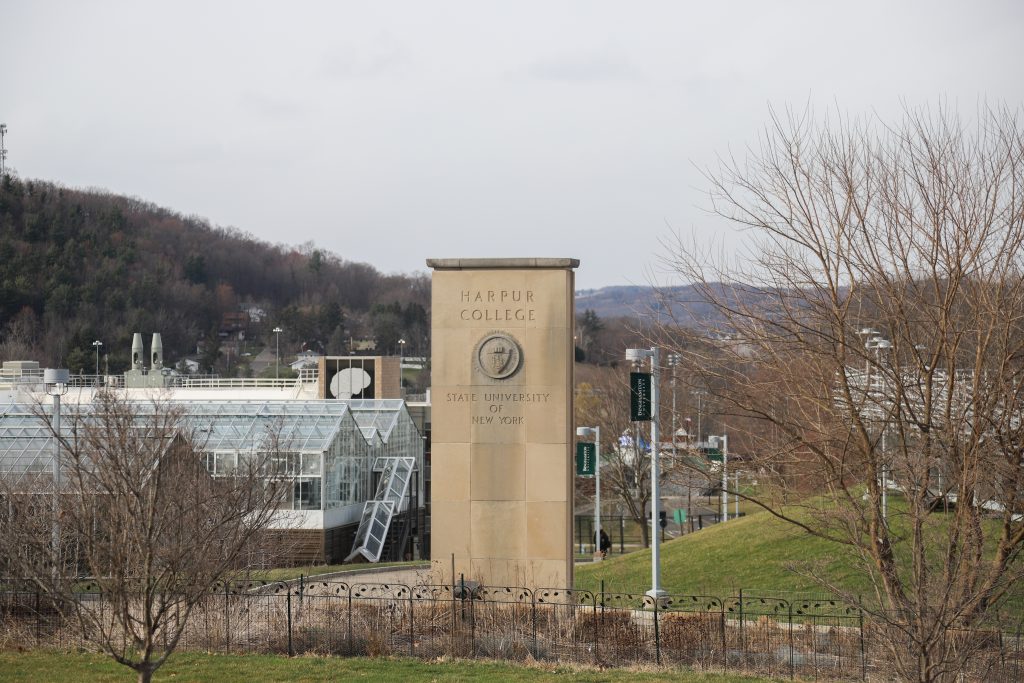In an announcement on campus during spring break, Gov. Kathy Hochul announced that Binghamton University will receive $123 million to renovate and maintain campus infrastructure.
The University will use the state funding toward several large projects, including a new lecture hall, classroom and chemistry lab complex, which will cost $60 million. An additional $30 million will be used to renovate Science III, $22 million will go into Fine Arts building renovations and $11 million will be used for general campus maintenance.
The new lecture hall will be the biggest project and will function as an additional class space. With applications to the University increasing by five percent from 2021-22, the demand for more classrooms and living space for incoming students has risen.
“This new building will serve as a hub for students to take classes and study in the Information Commons,” University President Harvey Stenger said. “It will help meet current and future demand for our largest classes, and provide space for more classes at convenient times for faculty and students.”
It will include two large lecture halls — one seating 300 and another accommodating 180 — a 100-seat active learning space, two learning studios, 23 general-purpose classrooms, three computer rooms and an information commons. Construction on the new complex, located across from Academic Building A and next to M Lot, will begin next spring.
The Science III building, which includes the E.W. Heier Teaching and Research greenhouses, will be overhauled, with about 45,000 square feet being renovated. Parts of the current building will be gutted and turned into new laboratory spaces, classrooms and offices, and the building’s electrical, plumbing and fire systems will be upgraded. Construction for this project began in early 2023, and the first phase will be completed by March 2025.
“We want to attract more professors and welcome more students to these programs, so it’s an important investment — one of the largest we will be making in the SUNY system,” Hochul said at her March 1 press conference.
Critics of the University’s ever-increasing enrollment have mentioned the lack of established infrastructure to support students. Early in the fall semester, over 150 students were forced into super occupancy housing — an arrangement where three or more students lived in a space designed to accommodate two.
To alleviate space concerns at the beginning of the spring semester, the University renovated and reopened Old Rafuse Hall, which can house 152.
In addition to larger planned renovations, a second floor will be added to the Chenango Room — which will hold Einstein’s Bagels — while a new Panera Bread will take its place on the first floor. The plan was slated to be completed in August 2018, but experienced delays.
Yossi Schmeidler, a freshman majoring in English, said the investments in campus infrastructure were a positive development.
“I am glad that they are giving the school money, and the new lecture hall will be a good place for students to attend classes,” Schmeidler said. “The study areas will make more students motivated to study. I would like it if the school used its money to build a second gym, and possibly include the member fees in our tuition.”



